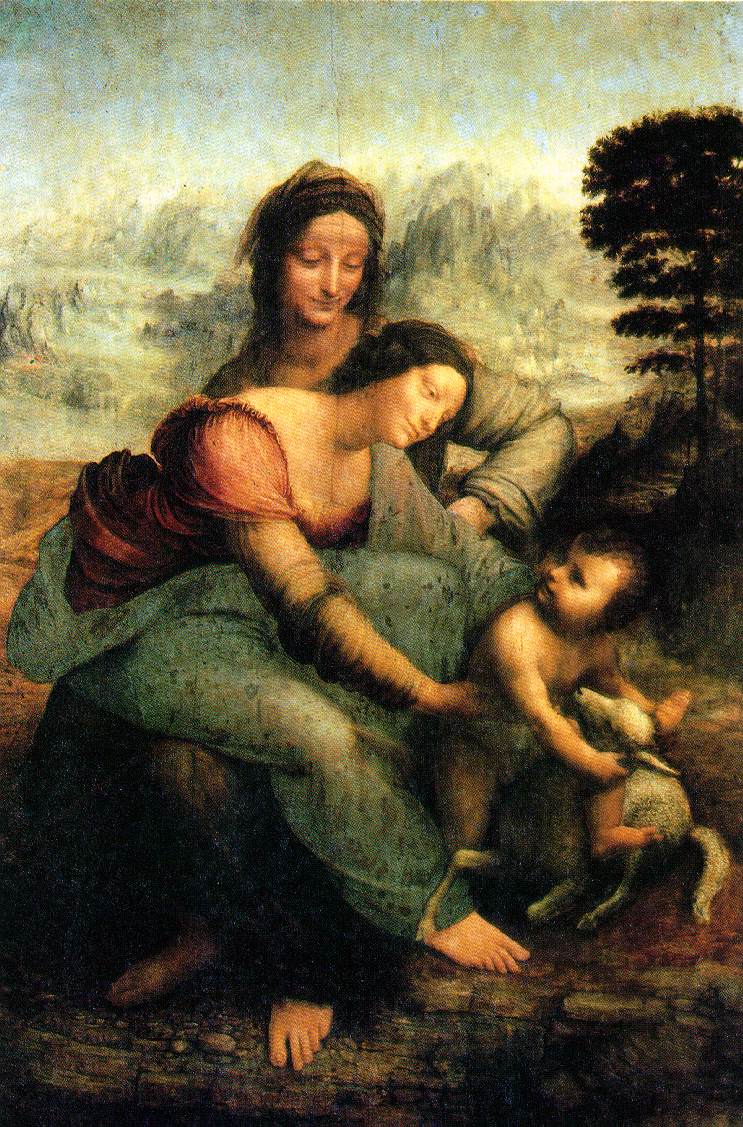
Physical: 170 x 129 cm.
Unfinished.
Location: Paris, Louve
Circa: 1506-10
[This version was by Leonardo and his pupils.]

The
theme of the Christ Child on the knee of the Virgin, who is herself seated
on St Anne's lap, is fairly rare, but examples of it can be found from
the Middle Ages onwards - the stream of life flowing through three generations.
Leonardo must have chosen this unusual theme for symbolic reasons, which
have been variously interpreted. Sigmund Freud made out the shape of a
vulture in the Virgin's garment, and suggested a psychoanalytical explanation:
since as a child Leonardo dreamt that he had been attacked in his cradle
by a
vulture.
There is a cartoon in the National Gallery in London by Leonardo of the
same subject but differing in important respects from the Louvre painting.
We know from a letter that Leonardo made another cartoon, now lost. The
painting was commissioned by the Servites in Florence. It is unfinished;
perhaps it was abandoned because of the artist's sudden interest in mathematics,
and his engagement as engineer in the service of Cesare Borgia. Another
hand seems to have finished the lamb which he had perhaps only sketched
in; the
landscape,
St Anne, the Virgin and the Child Christ are the work of Leonardo himself.
The paint is applied thinly, it is limpid and transparent, so that in some
places the underlying sketch is visible. This has become apparent since
the very dark varnish was lightened and some overpainting removed in 1953.